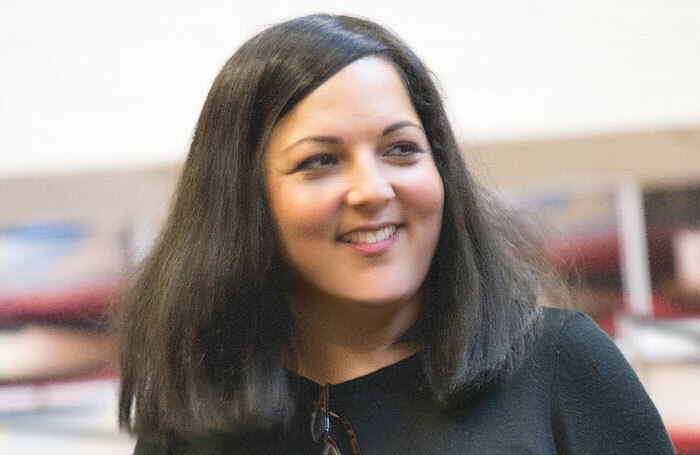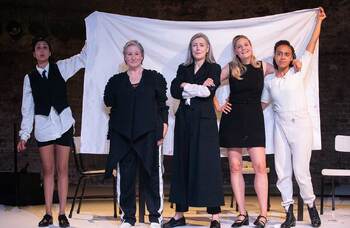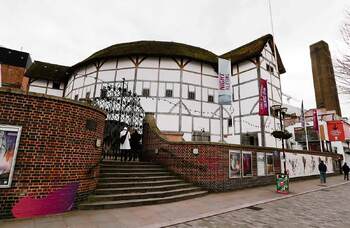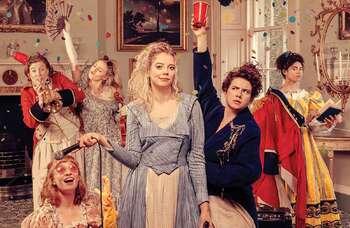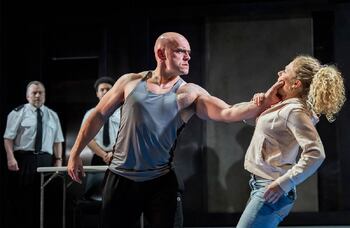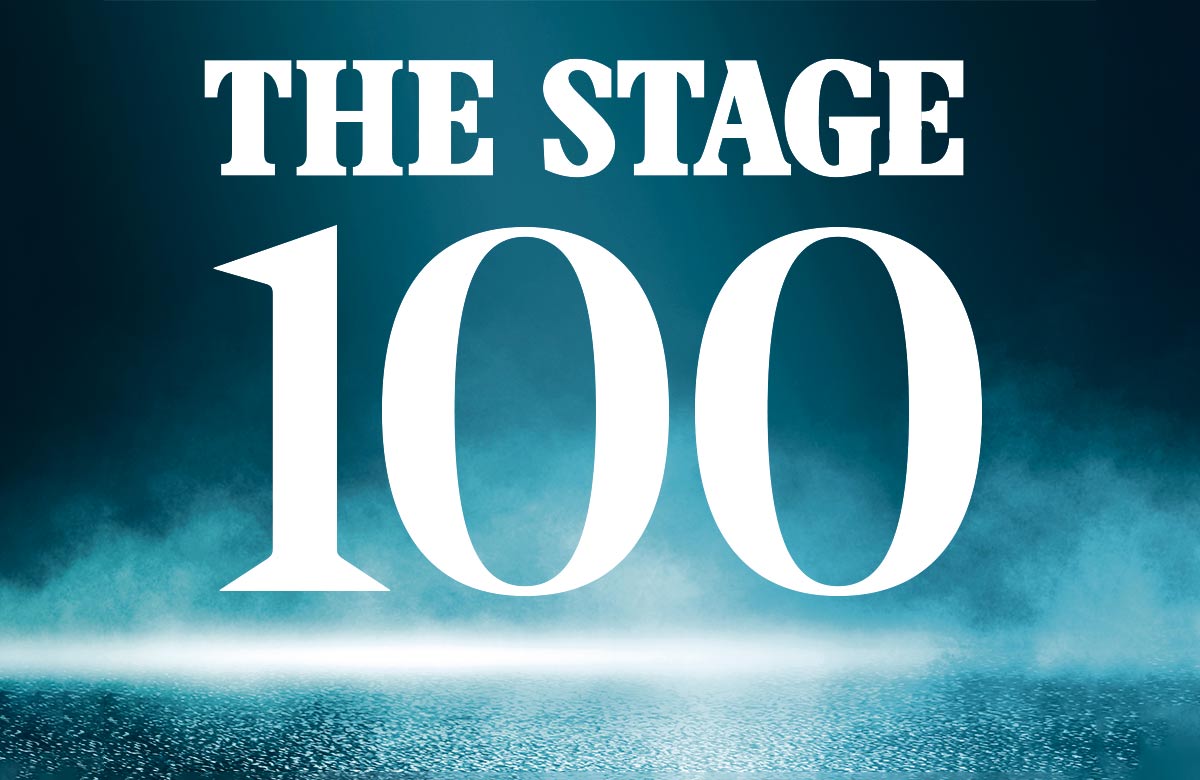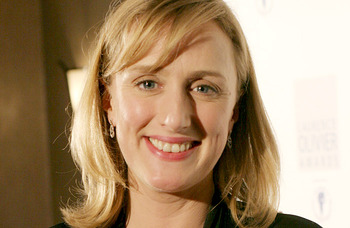Nadia Fall: ‘I want to make work that has an opinion’
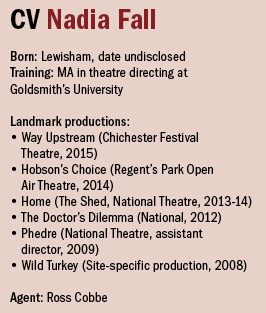 “People have this sense of ownership of this play, ergo I have this great sense of responsibility.” Nadia Fall is in the fourth week of rehearsals of Timberlake Wertenbaker’s modern classic, Our Country’s Good. She’s briefly escaped the rehearsal room to speak to me but it doesn’t feel like she’s completely left it behind. Written in 1988, the play, about the first group of convicts sent out to Australia’s penal colonies, has firmly embedded itself in the repertoire.
“People have this sense of ownership of this play, ergo I have this great sense of responsibility.” Nadia Fall is in the fourth week of rehearsals of Timberlake Wertenbaker’s modern classic, Our Country’s Good. She’s briefly escaped the rehearsal room to speak to me but it doesn’t feel like she’s completely left it behind. Written in 1988, the play, about the first group of convicts sent out to Australia’s penal colonies, has firmly embedded itself in the repertoire.
“It’s a play close to lots of people’s hearts, because they’ve read it or studied it or starred in it at drama school,” she says.
But Fall herself had never seen it or read it before she came to direct it. “I think I was the only person in the world who hadn’t. But in a way I’m glad I didn’t know it before. I hope that leads to me doing a fresh interpretation of it, one true to the soul of it.”
Something in the lives depicted touched a chord with Fall, who’s done work with people in the prison system. She invited some of the ex-prisoners she knew to come and talk about their experiences during the rehearsal process.
“We talked with Timberlake about the fact that while her play is a history play, it speaks about the prison system, and how it feels to be part of that system, the psychology of that, the trauma.”
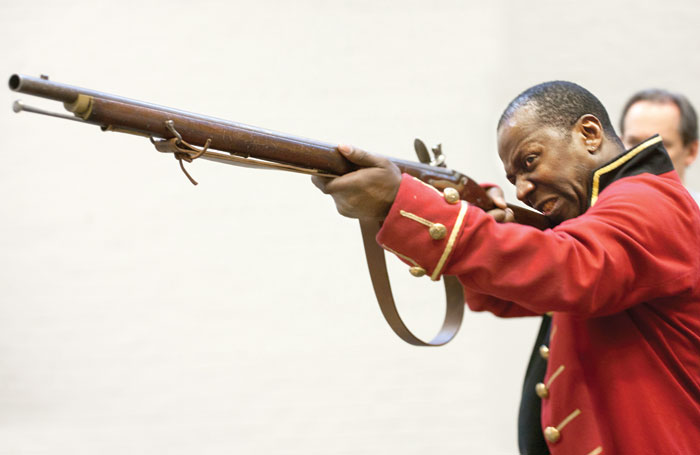
Following an MA at Goldsmiths, Fall trained on the National Theatre Studio’s directors programme and has a long and close relationship with the theatre.
“The National has been such an important part of my life. I feel like it’s my second home. I’m a south Londoner and it’s on the South Bank and I feel very close to it – I’ve grown up here in a way – even when things are hard, I love being part of it. And while I enjoy working outside the building and learn a lot from those projects, coming back here is like coming home.”
During her time there she’s worked with Nicholas Hytner as an assistant director on Phedre and as associate director on The Habit of Art and The Curious Incident of the Dog in the Night-Time, before directing her own productions, Shaw’s The Doctor’s Dilemma in 2012 and, earlier this year, Tanya Ronder’s adaptation of Dara, a play by Pakistani writer Shahid Nadeem, both of which were staged in the Lyttelton. She’s also created work for the NT’s temporary space, the venue then known as the Shed, but this is her first time directing in the Olivier.
One of the biggest challenges ahead of her, she says, is the fact that Wertenbaker’s play is built for doubling. “That’s part of its aesthetic, that’s part of the spirit of it. It was written for a smaller space. But the production needs to inhabit ‘the Ollie’. They’re using music and movement as a way of addressing this. “But that takes a lot of time. Even though we have a relatively luxurious rehearsal process at the National, there’s quite a lot to do and I never feel like I have enough time.”
She loves the Lyttelton – “It’s like a cinema screen and it takes rhetoric so beautifully” – but at the same time she also likes “forensic things, I like close-up. The challenge here is to sustain the intimacy of the play in a huge space”.
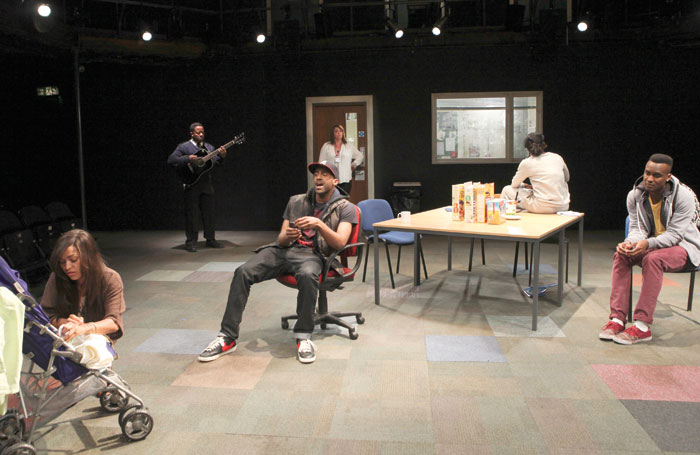
Another space she loves is the Open Air Theatre in Regent’s Park where, in 2014, she directed Hobson’s Choice. “It’s such a special space.” When she was working with Hytner on Phedre, they staged it in the ancient theatre in Epidaurus in Greece. “It was cosmic, mind-blowing stuff, wolves and bats and moonlight – and Helen Mirren. There’s something elemental about it, it’s closer to God and nature. Regent’s Park has that too.”
Fall’s path into the industry was not as straightforward as some.
She didn’t always have a clear-eyed desire to direct. She studied drama at school but she comes from a fairly traditional Asian family and her parents didn’t want her to take it further. She was “a compliant child for a long time – I’m making up for it now – so I came to theatre quite late”.
 For a long time, Fall says, she felt a career in theatre might not happen, but she kept at it because: “I don’t know anything else and, as I’ve said before, stamina is really important.”
For a long time, Fall says, she felt a career in theatre might not happen, but she kept at it because: “I don’t know anything else and, as I’ve said before, stamina is really important.”
All her experiences have shaped her too, have made her the director she is. “You collect all this stuff in your life. I really like working with young people in challenging settings – prisons, pupil referral units – that work is invigorating and I miss it often. It also kept me working and solvent.”
She felt as if things had come full circle when she created and directed Home for the National in 2013.
While she believes that, by necessity, you end up having a love affair with whatever project you’re currently working on, Home was different. It was a piece she shaped herself. Based on more than 30 hours of interviews, it explored life in a hostel for the young homeless people, and was an “all-consuming” piece to make, an evident passion project, one which gave voice to those so often voiceless. Its cast included poet and performer Michaela Coel, whose solo show, Chewing Gum Dreams, Fall would go on to direct, and featured the beatboxing of the brilliantly inventive Grace Savage, a woman changing perceptions of the form. Home was, she says, “a perfect storm in retrospect”. She adds: “I got to be the one who created it. I got to make a piece of theatre that was political; all of the elements came perfectly together and I will never forget it. I want to do more stuff like that.”
Though she considers all storytelling to be political, Fall wants to make work that actively provokes thought. “I want to make work which says something about the world, and, in however small a way, tries to change it. I do have opinions and I want to share them. I don’t want to create inert work which doesn’t have an opinion.”
She says she doesn’t envy young directors starting out now. “It was difficult when I was starting out, it’s always been difficult, you always lived hand-to-mouth, but it’s super-difficult now. I don’t know how people starting out do it.”
While sometimes limitations can be galvanising, she says, recalling her 2008 production of Joe Penhall’s Wild Turkey, which she ended up staging in a disused restaurant, she believes “you shouldn’t have to make work out of desperation. You can’t sustain a career like that”.
Her voice kicks up a notch and she starts to speak to with increasing passion. “The arts are important, and not just for keeping the economy buoyant. Our engagement with the arts is important to us all – if we don’t have art, we can’t figure out who we are and where we stand in the world. It’s how we grow as people. It’s not a luxury. If you engage young people in the arts, you are looking after the mental well-being of a nation. I’ve seen first-hand how they can help people, how starring in a play can help a person in prison, how writing workshops in secure psychiatric wards can help people. It’s not mumbo-jumbo. It works. It helps.”
Our Country’s Good runs in rep at the National from August 19 to October 17
Opinion
Opinion
Most Read
Across The Stage this weekYour subscription helps ensure our journalism can continue
Invest in The Stage today with a subscription starting at just £7.99
